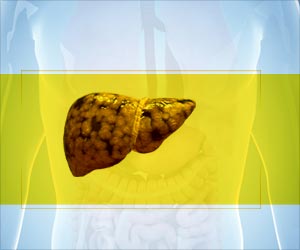The Cleveland Clinic research shows that most patients with diabetes and obesity who undergo gastric bypass experience remission of their diabetes and lose significant weight.

The five-year risk of death from cardiovascular disease dropped by 18 percent and the risk of developing moderate to severe kidney disease dropped by 45 percent. Patients were also at significantly less risk for intermittent claudication, pain caused by poor circulation, (four-year risk reduction of 47%) and other complications including diabetic retinopathy.
The research* was presented here at the 30th Annual Meeting for the American Society for Metabolic and Bariatric Surgery (ASMBS) during ObesityWeek 2013, the largest international event focused on the basic science, clinical application and prevention and treatment of obesity. The event is hosted by the ASMBS and The Obesity Society (TOS).
"This study emphasizes that gastric bypass dramatically changes the trajectory of many chronic diseases associated with diabetes and improves multiple cardiovascular risk factors in the long term," said study co-author Stacy A. Brethauer, MD, Staff Physician in the Section of Laparoscopic and Bariatric Surgery at Cleveland Clinic.
The study followed 131 patients with diabetes and obesity for a period of about six years after gastric bypass surgery. On average, patients lost 60 percent of their excess weight and had a diabetes remission rate of 61 percent. The average patient in the study had type 2 diabetes for more than six years before surgery.
Using multiple validated risk assessment models including the Framingham Risk Score, researchers were able to determine a patient's relative risk for coronary heart disease, stroke, myocardial infarction (heart attack), peripheral vascular disease (PVD), cardiovascular mortality and diabetic retinopathy. In all cases, surgery patients saw double digit decreases in the relative risk of developing these individual complications linked to diabetes. The overall risk of developing coronary heart disease, stroke or peripheral vascular disease within the next 10 years dropped by 27 percent.
Advertisement
About Obesity and Metabolic and Bariatric Surgery
According to the Centers of Disease Control and Prevention (CDC), more than 78 million adults were obese in 2011-2012.1 The ASMBS estimates about 24 million people have severe or morbid obesity. Individuals with a BMI greater than 30 have a 50 to 100 percent increased risk of premature death compared to healthy weight individuals as well as an increased risk of developing more than 40 obesity-related diseases and conditions including type 2 diabetes, heart disease and cancer.2,3
Metabolic/bariatric surgery has been shown to be the most effective and long lasting treatment for morbid obesity and many related conditions and results in significant weight loss. The Agency for Healthcare Research and Quality (AHRQ) reported significant improvements in the safety of metabolic/bariatric surgery due in large part to improved laparoscopic techniques.4 The risk of death is about 0.1 percent5 and the overall likelihood of major complications is about 4 percent.6
Advertisement
The ASMBS is the largest organization for bariatric surgeons in the world. It is a non-profit organization that works to advance the art and science of bariatric surgery and is committed to educating medical professionals and the lay public about bariatric surgery as an option for the treatment of morbid obesity, as well as the associated risks and benefits. It encourages its members to investigate and discover new advances in bariatric surgery, while maintaining a steady exchange of experiences and ideas that may lead to improved surgical outcomes for morbidly obese patients.
Source-Newswise















